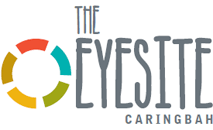Vision & Learning
Vision is our most dominant sense and your child’s eyes need to work in synch in order to realise their full potential.
Did you know that about 80 per cent of the information processed for learning is visual?
Reading, writing, spelling and certain mathematical skills all require adequate visual skills and development. So it’s no surprise to learn that any inefficiency within the visual system can impact on learning and development.
When most people think of vision, they think of clarity of sight. In fact, clarity of vision has very little correlation with your child’s ability to learn.
Some of the visual factors that can impact on learning include stamina and flexibility of focussing, ‘eye teaming’ (binocular vision), eye movement control (such as tracking) and vision processing (‘giving meaning to what we see’).
Here, at The Eyesite Caringbah, we assess more than just the clarity of your eyesight and your eye health; we also assess all of the visual skills you require for efficient visual function. To do this, we conduct vision information processing assessments that enable us to identify any underdeveloped areas of your child’s vision processing that may be impacting on their learning potential.
Any child who is underachieving in school or who has difficulty with reading, memory or sustaining attention should have a comprehensive vision assessment.
As the famous paediatrician Arnold Gesell stated: "Vision development is child development viewed optometrically."
Yes, The Eyesite team will look at your child’s vision. But we are not just looking at their eyes, but rather how your child is developing, how they are seeing the world and how this affects their performance in every aspect of life.
The primary purpose of the visual process is to direct movement. So much of what a person does and how well they do it are a direct result of the quality, accuracy and speed of their responses and movements and this is all developed. An undetected visual problem early in life can be the cause of so many problems later in life. Regular visits to a behavioural optometrist can identify these problems and, in most instances, remediate them with a simple vision therapy plan.

